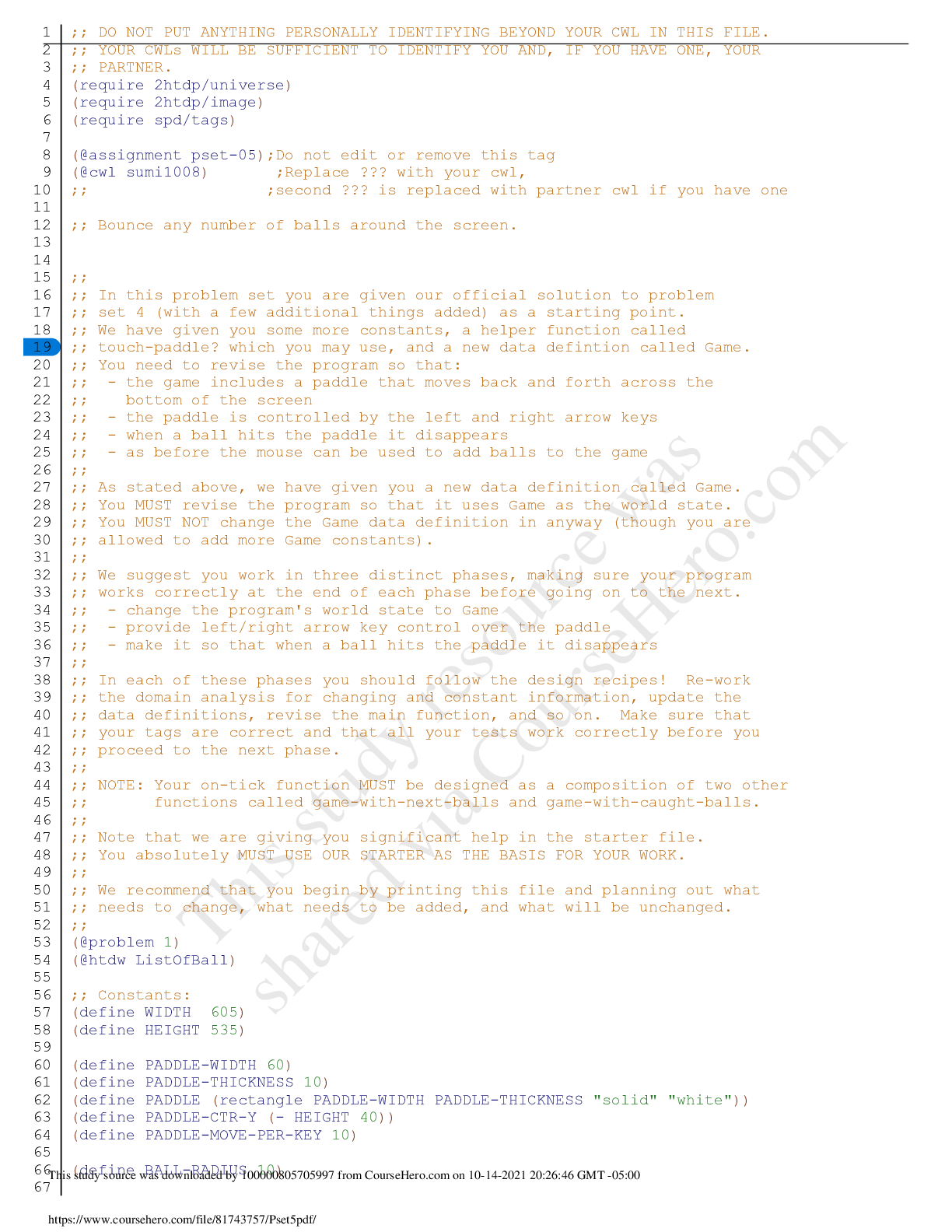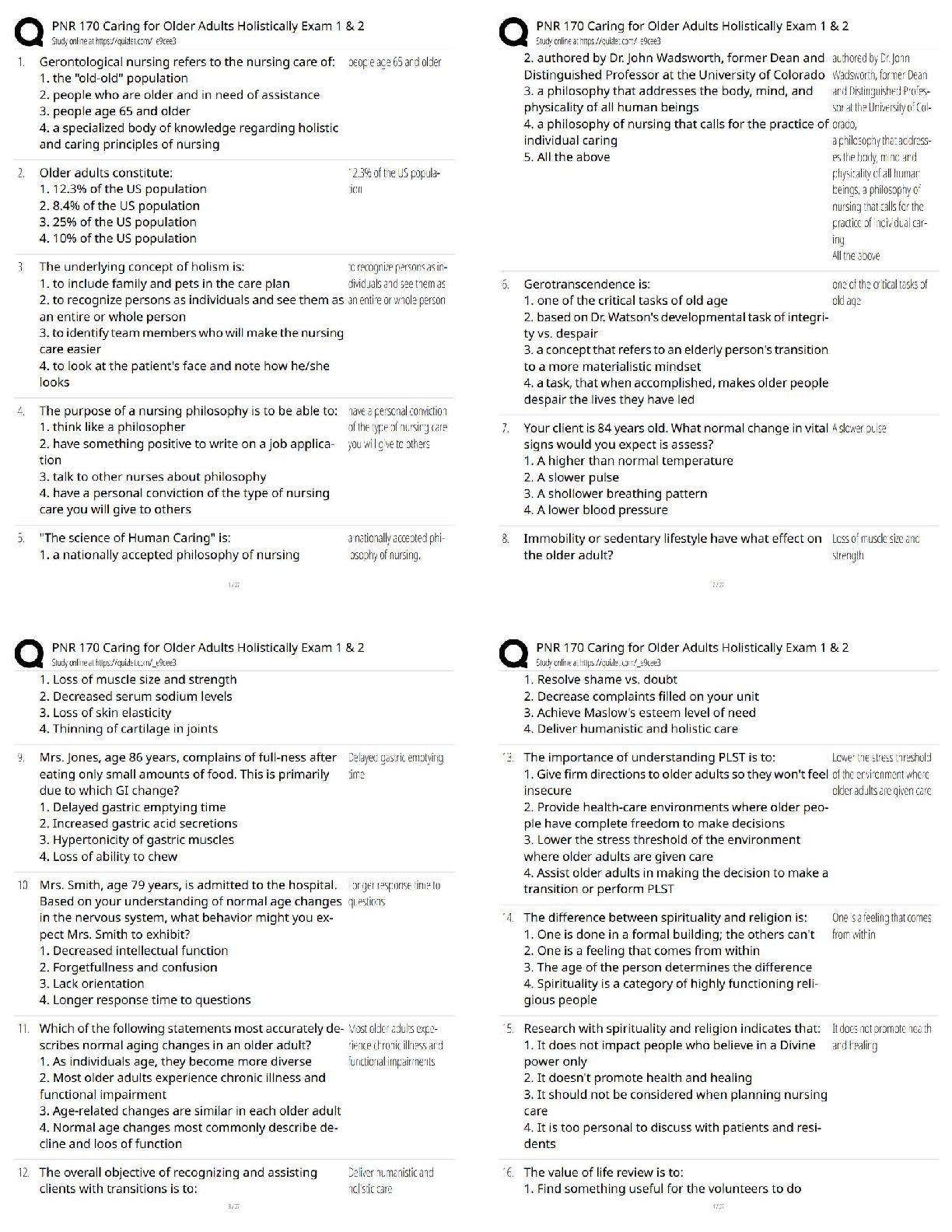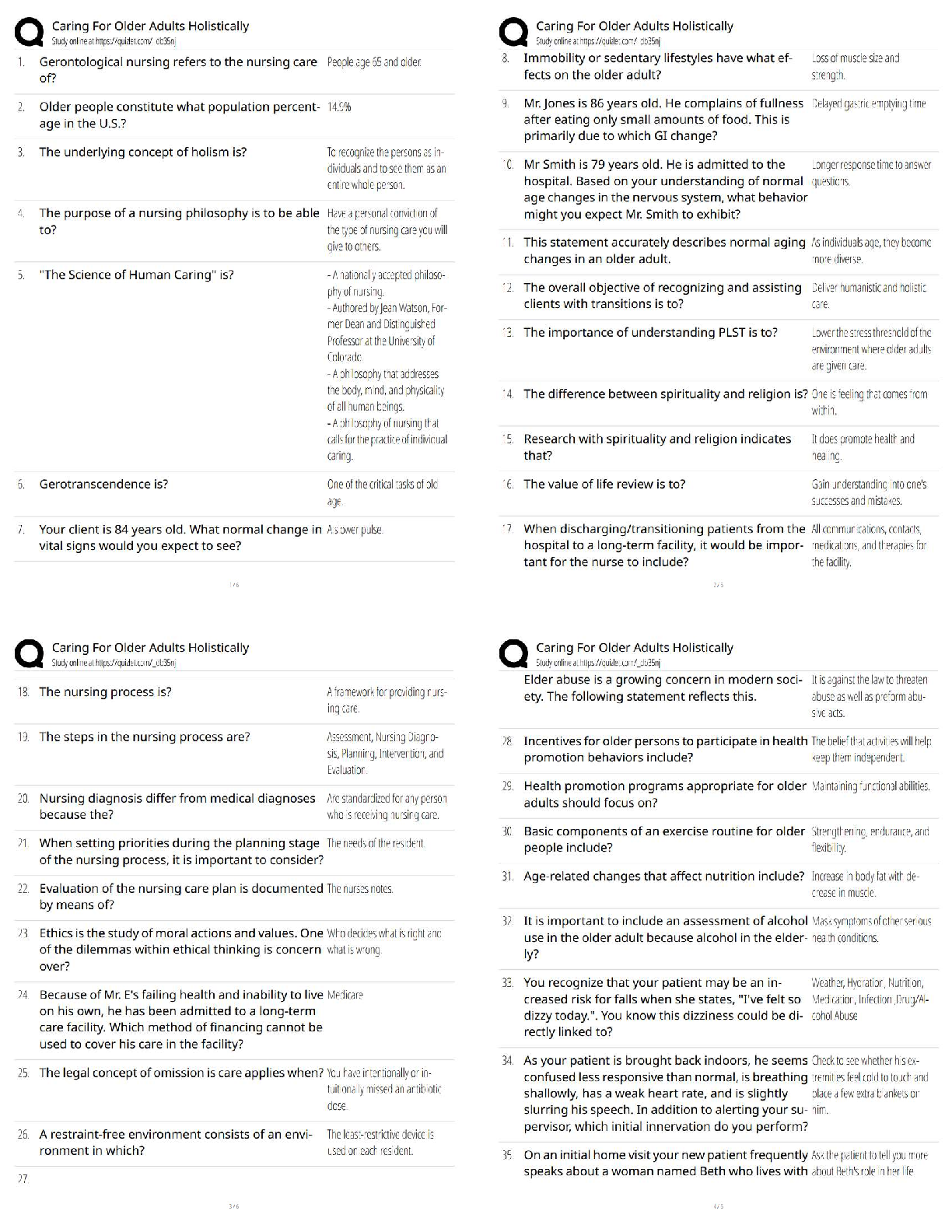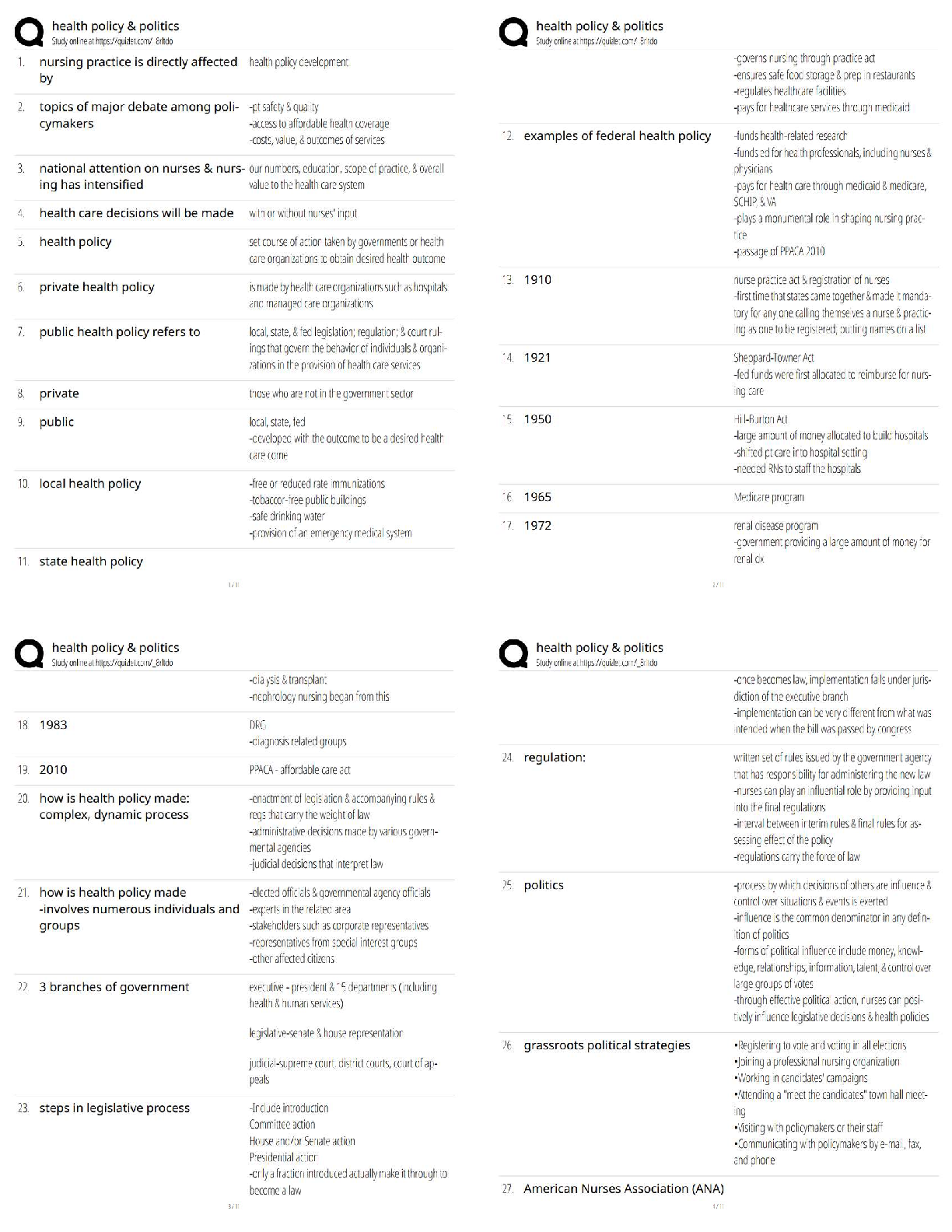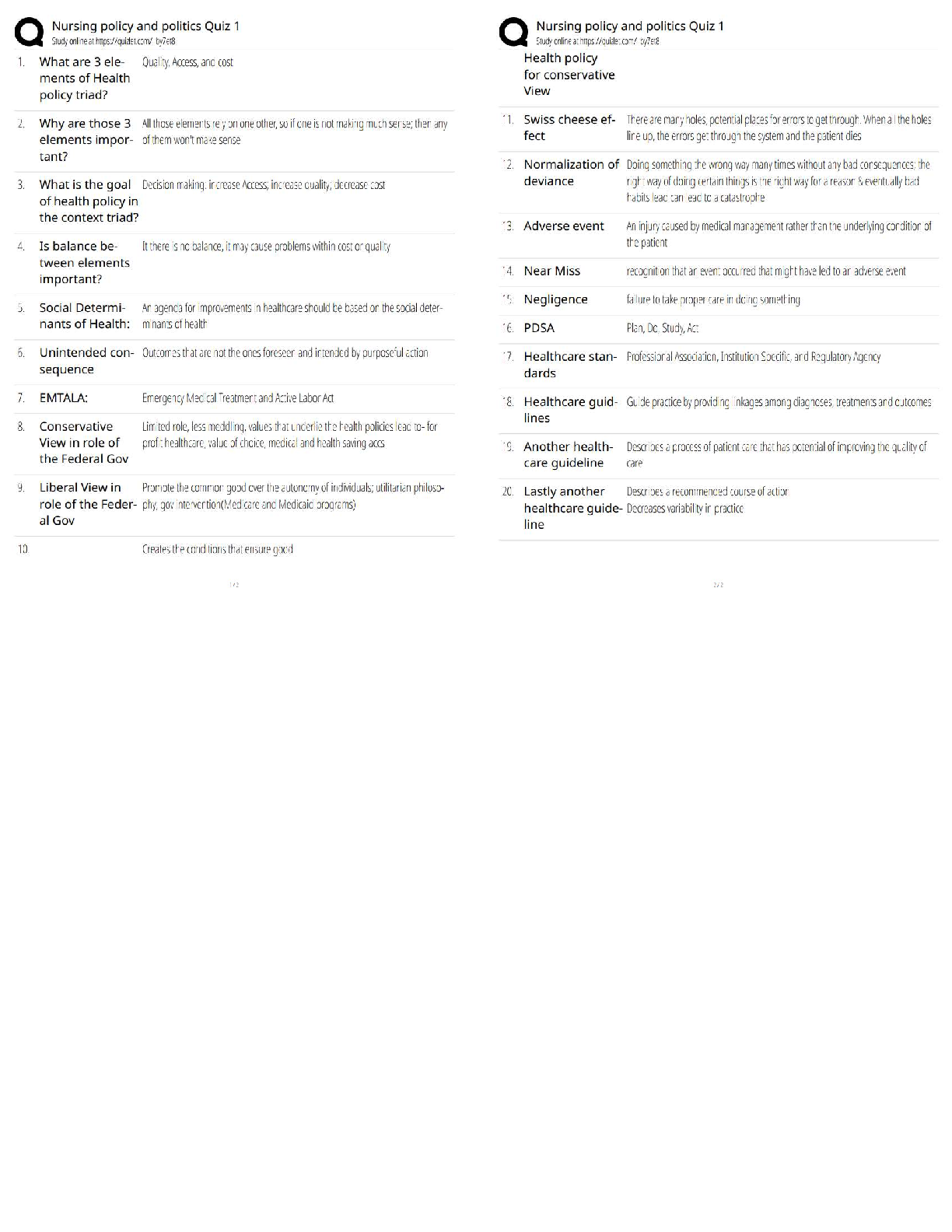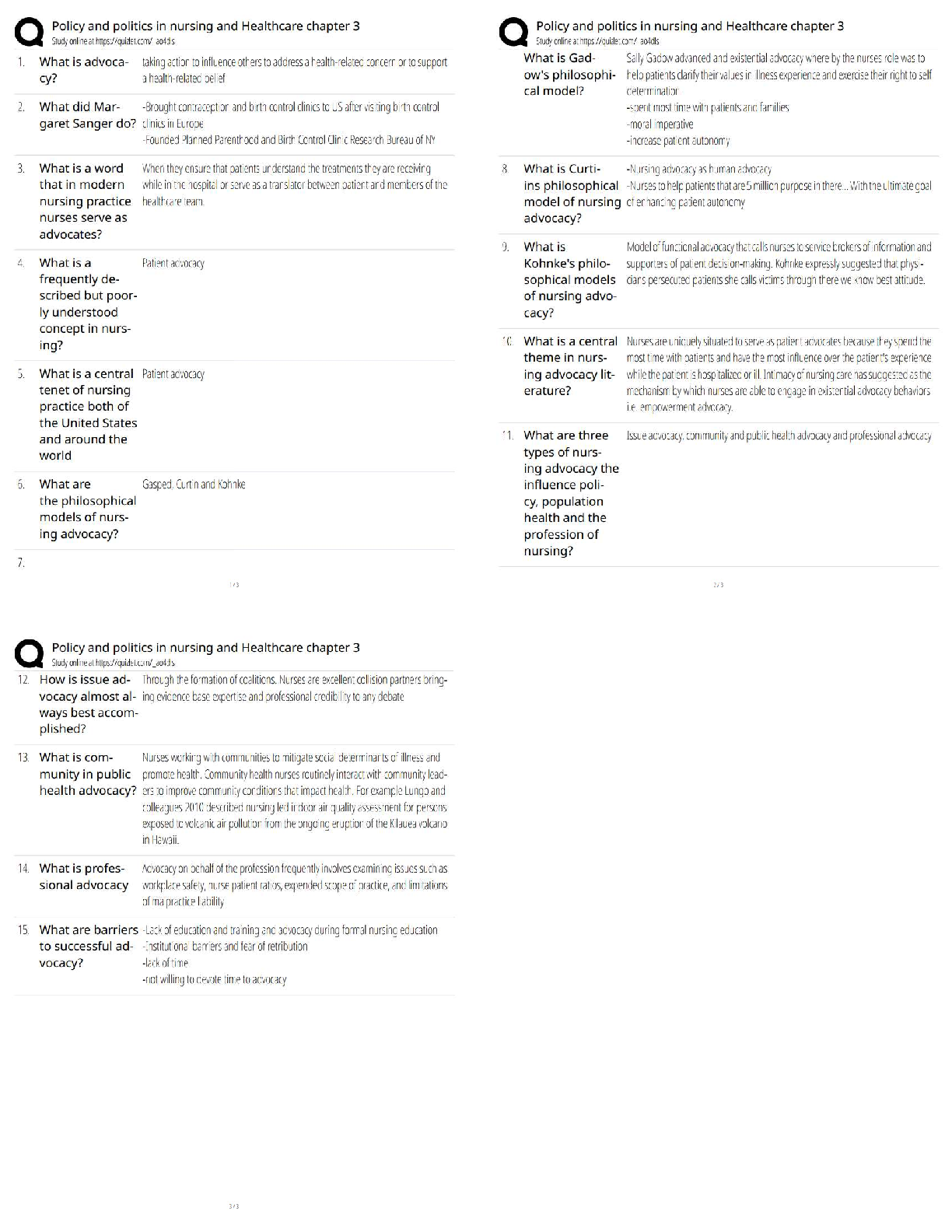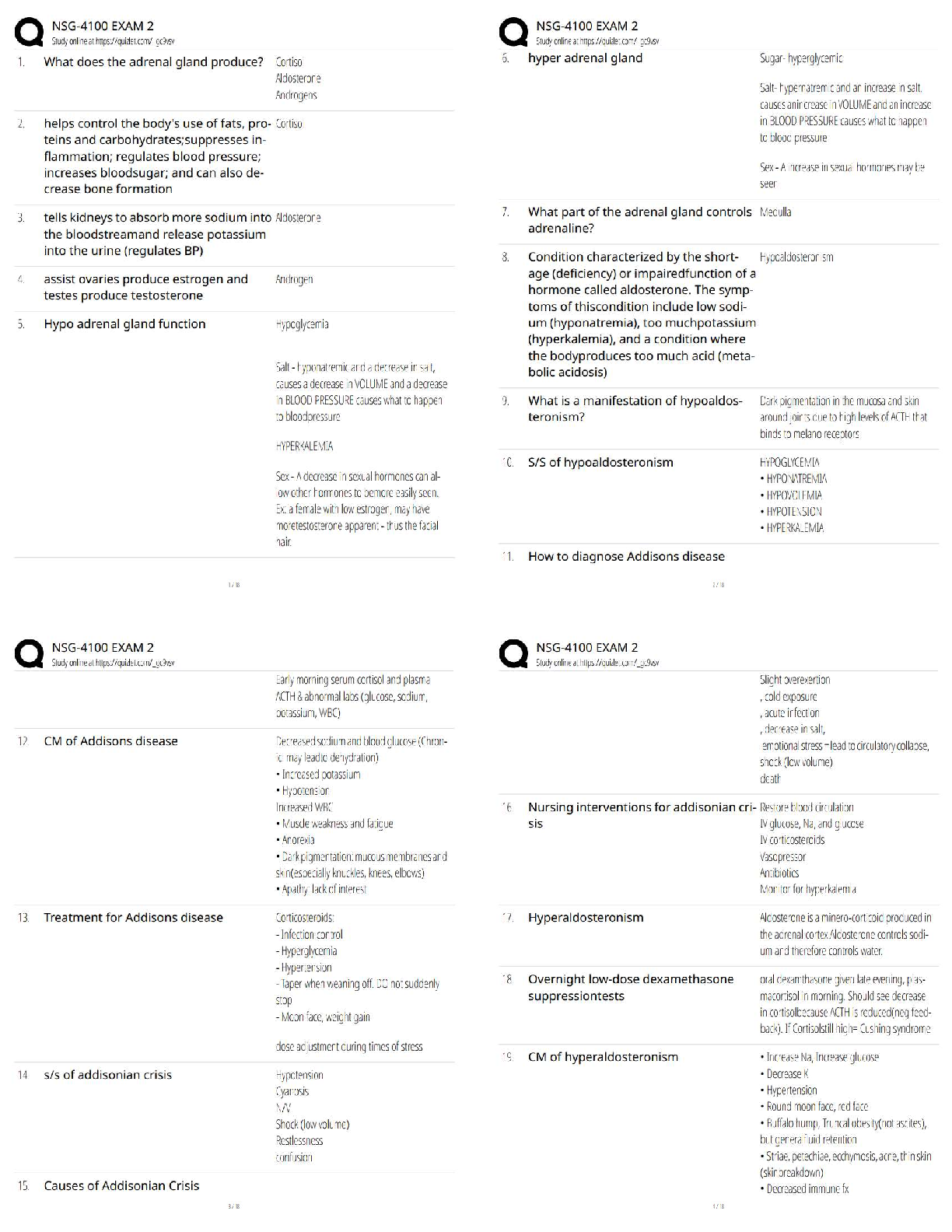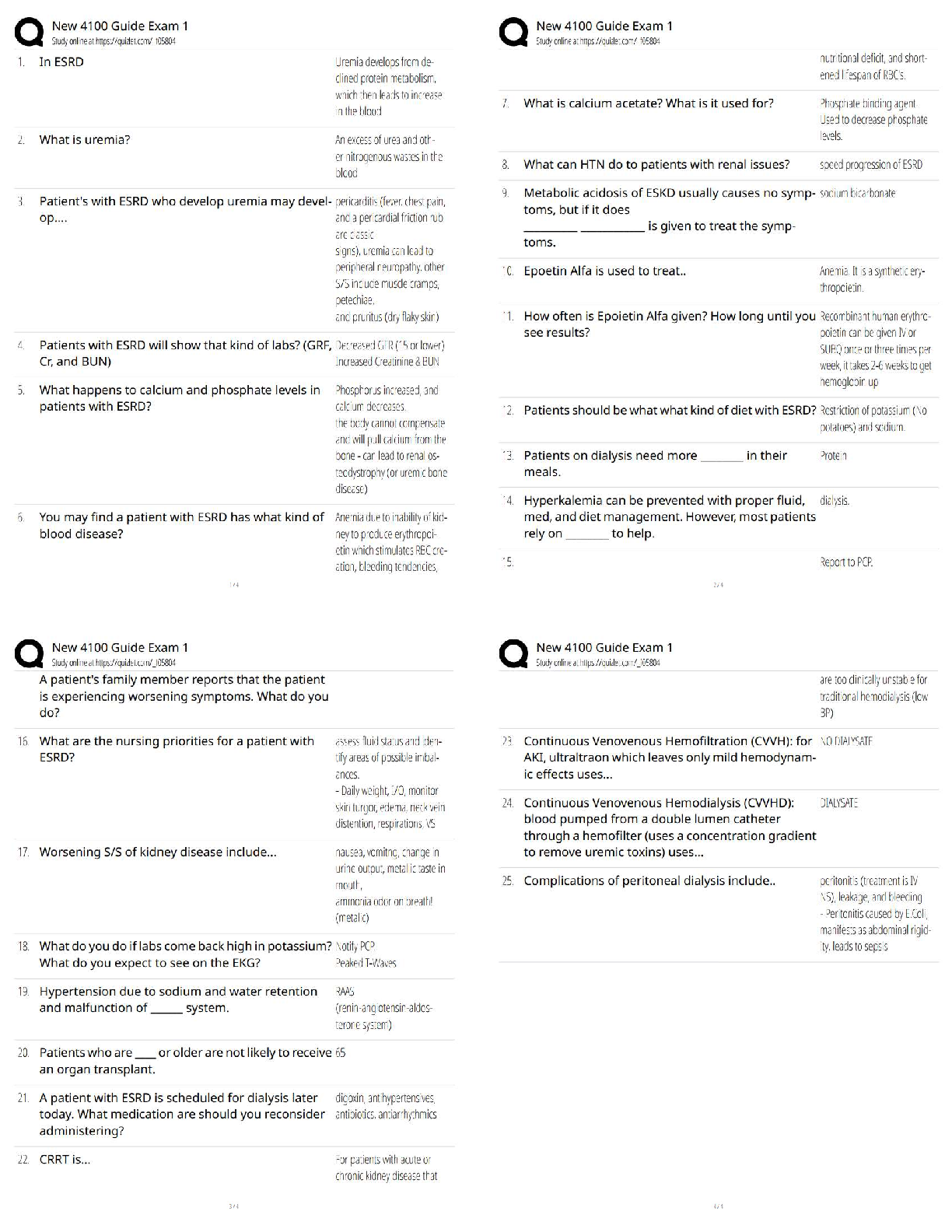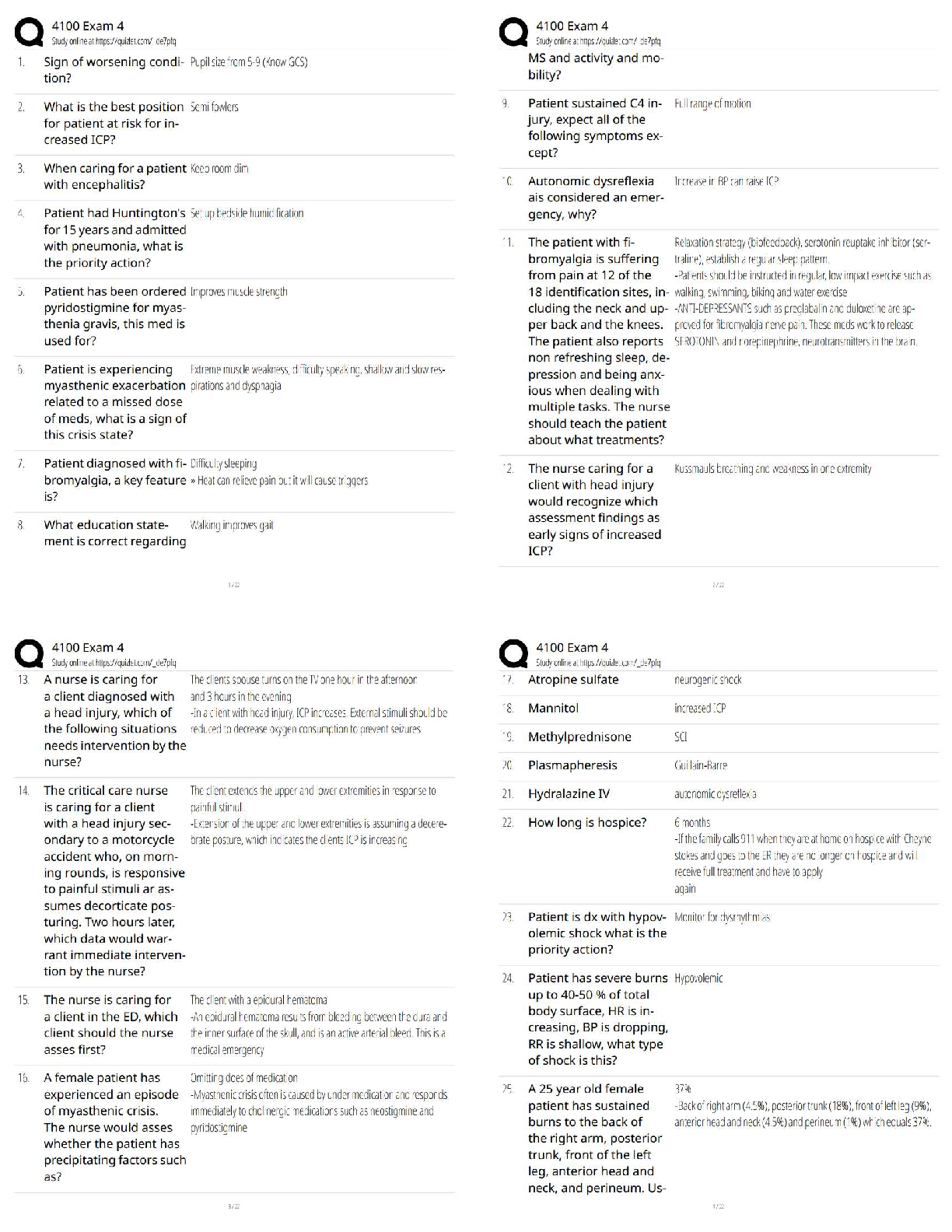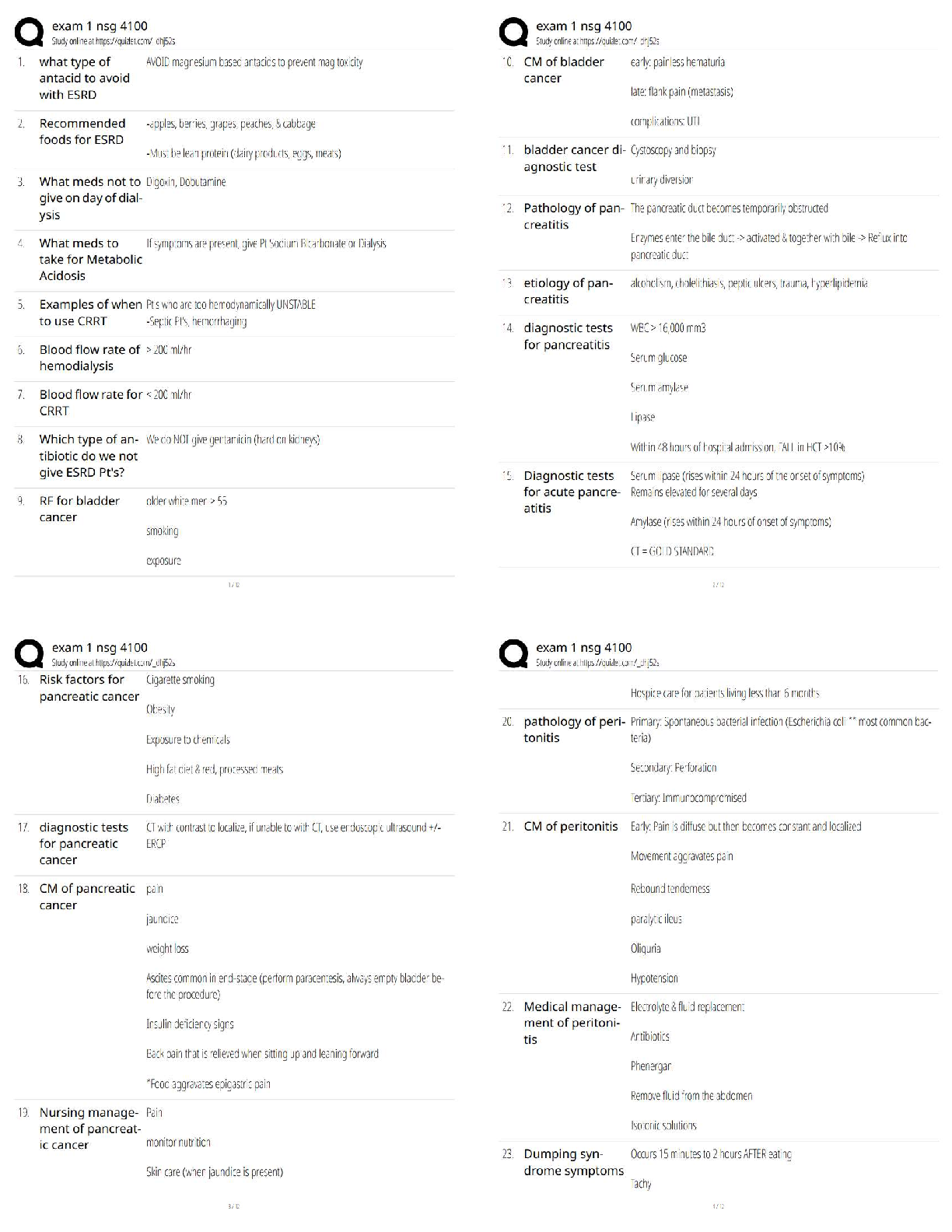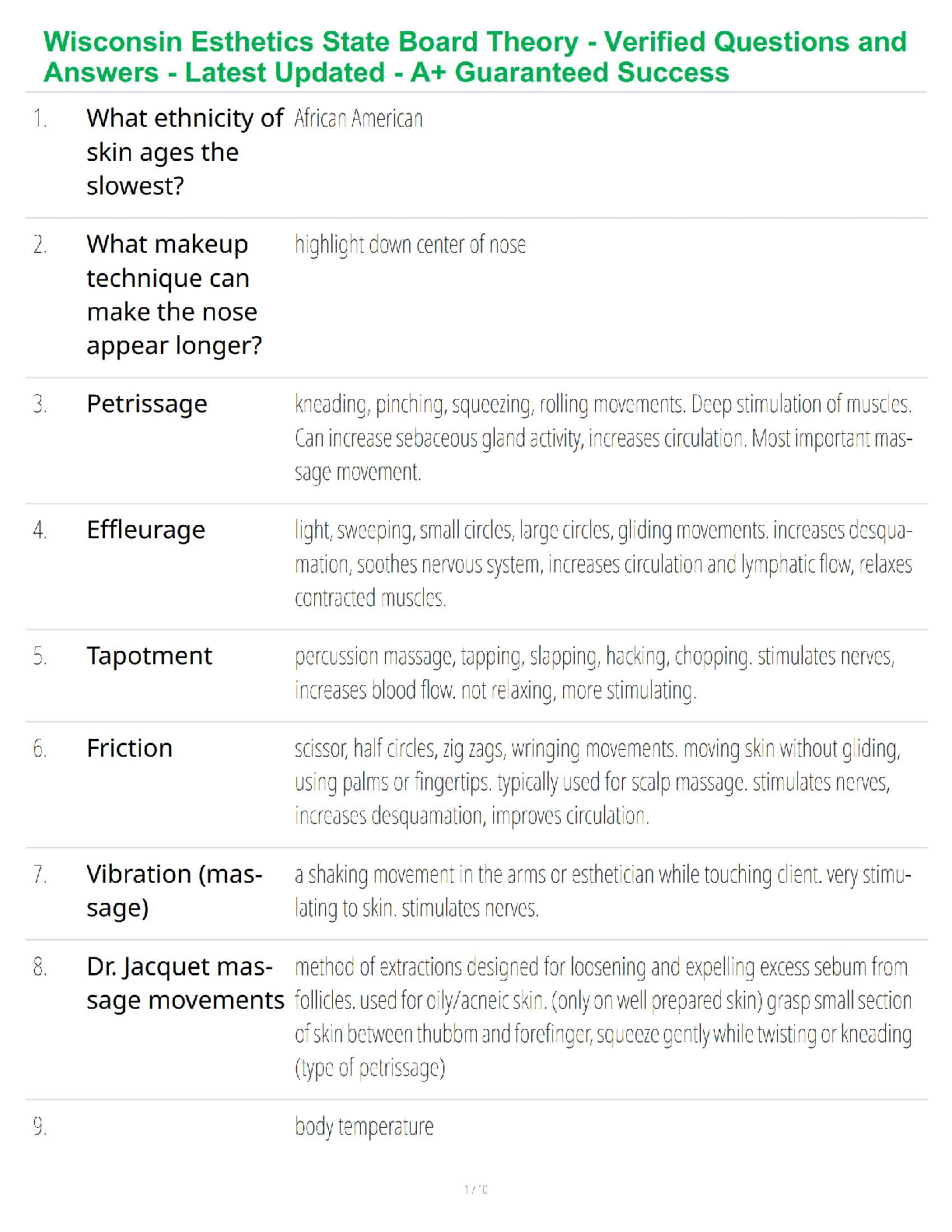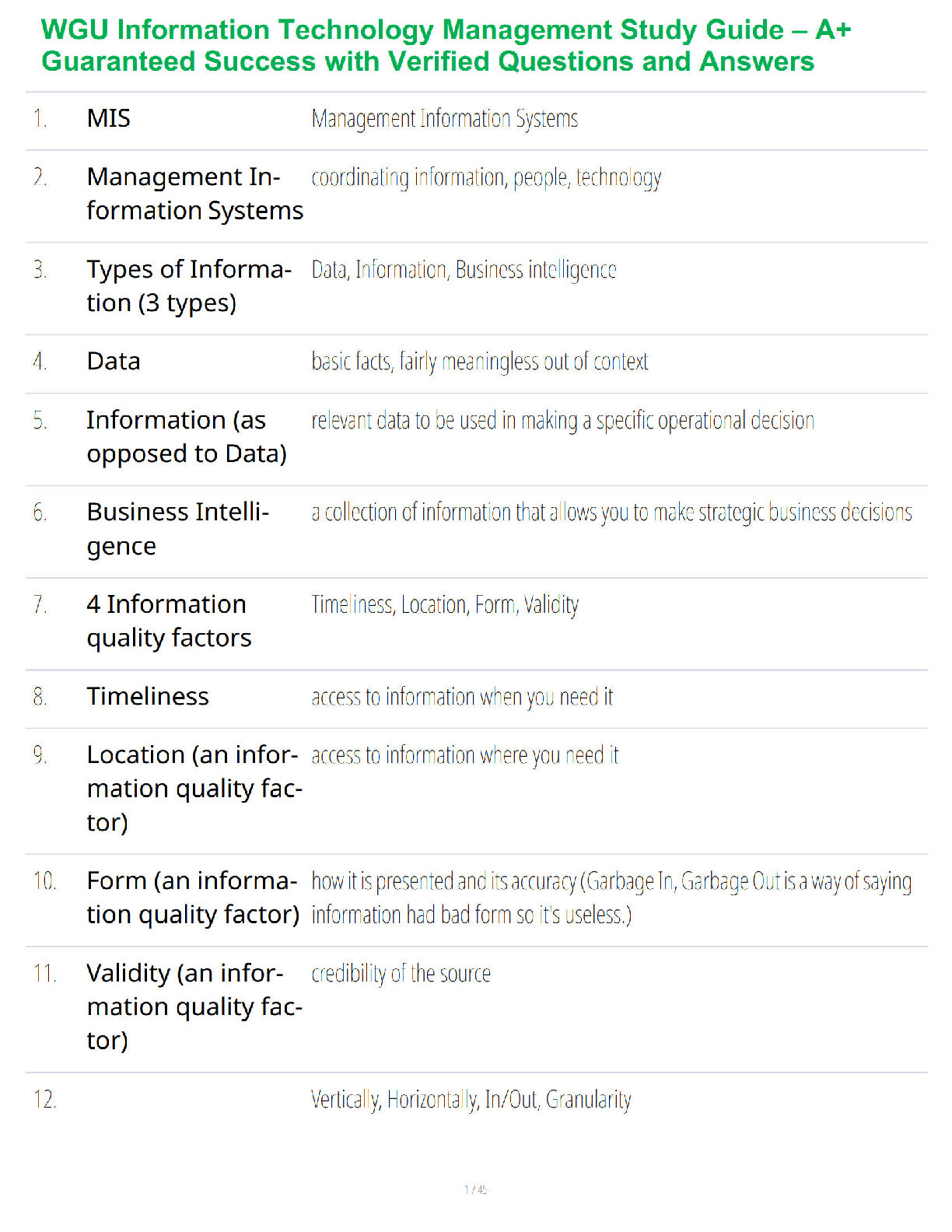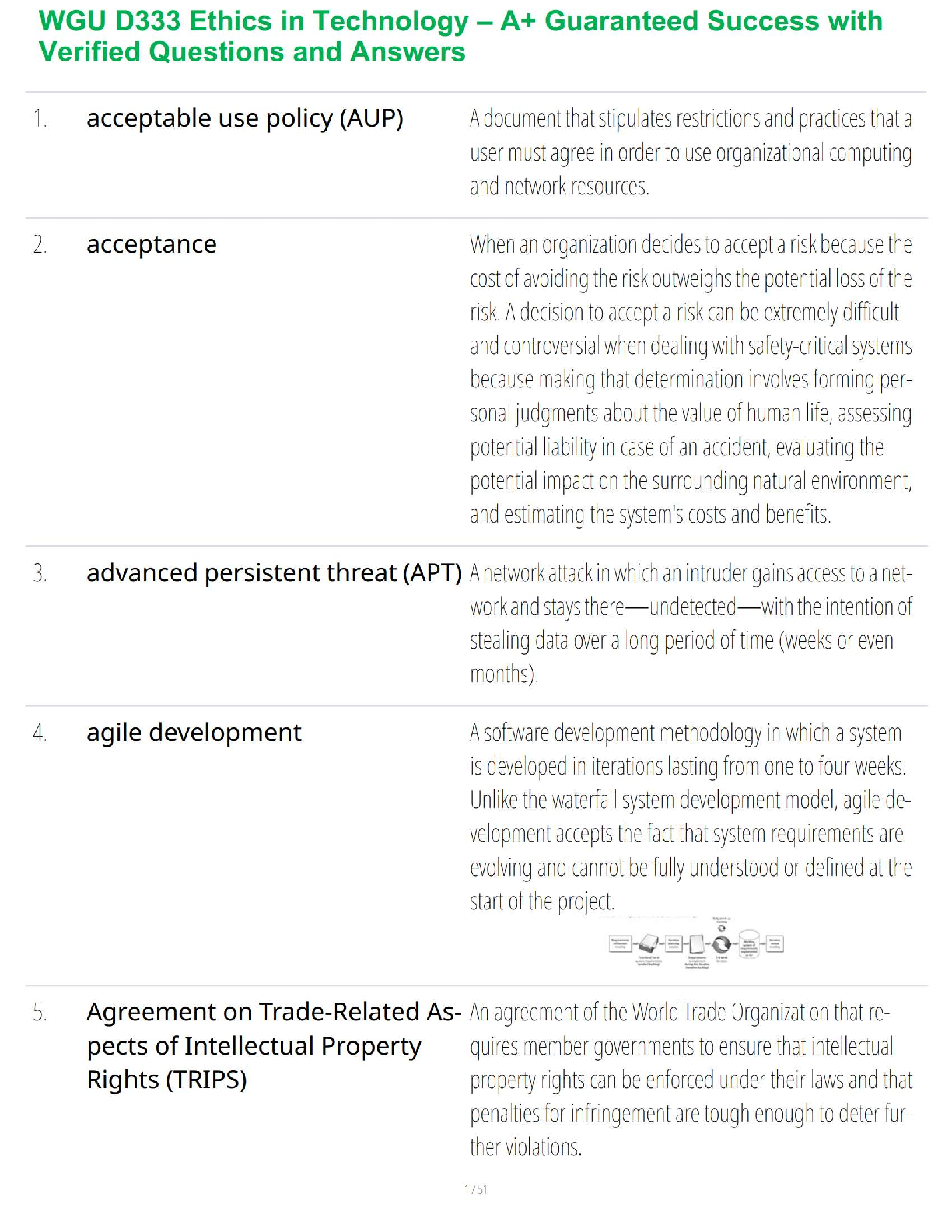NSG 6435 Week 8 Quiz
NSG 6435: Week 8 Quiz
WeeWeek 8 Quiz
Question 1
1 / 1 point
The physical exam of an established 7-month-old client - diagnosed with spastic cerebral palsy – will mostly likel
...
NSG 6435 Week 8 Quiz
NSG 6435: Week 8 Quiz
WeeWeek 8 Quiz
Question 1
1 / 1 point
The physical exam of an established 7-month-old client - diagnosed with spastic cerebral palsy – will mostly likely be positive for which signs?
Increased deep tendon reflexes and sustained clonus
Dystonic posturing and sustained clonus
Abnormal involuntary movements and increased deep tendon reflexes
Nystagmus and absent reflexes
Question 2
1 / 1 point
A 4-year-old client, who is new to the clinic, presents for a sick visit. However, upon exam the provider discovers that the client has flaccid paralysis over the lower extremities, absent deep tendon reflexes, lack of response to touch and pain, and has a saclike cyst on the lower back. What is the most probable diagnosis?
Viral gastroenteritis
Myelomeningocele
Meningitis
Shunt infection
Question 3
1 / 1 point
A 7-month old female client presents to the clinic to establish care. During the visit, the parents report that their daughter was developing as expected during the first 5 months of life but they fear that her development has plateaued. Over the last two months she has become withdrawn and has lost skills previously performed like partial hand skills and acquired spoken language. The provider notes on exam excessive bruxism, periods of apnea followed by hyperpnea, hand wringing, and spastic para¬paresis. What is the most likely diagnosis?
Rett Syndrome
Autism Spectrum Disorder
Cerebral Palsy
Brain Damage
Question 4
0 / 1 point
An apparently healthy 7-year-old client, presents to the clinic complaining of left-sided facial paralysis that occurred suddenly. The client denies any sensory loss but reports difficulty closing the left eyelid. The provider suspects the client has Bell’s Palsy. Which cranial nerve is most likely affected in this condition?
IV
V
VI
VII
Question 5
0 / 1 point
A 2-year-old client, who is unknown to the clinic, is presented as a walk-in after experiencing two seizures last night when the temperature spiked to 102°F. During the visit, the provider learns that the client is currently being treated for a viral illness. In the clinic, the client’s temperature is 100°F. The provider informs the parent that febrile seizures may reoccur. Although rarely required, what prophylactic medication can the provider prescribe? (select all that apply)
Diazepam 0.33 mg/kg by mouth every 8 hours for 2 to 3 days
Diazepam 0.5mg/kg by suppositories once per day
Phenytoin 0.33mg/kg by mouth every 8 hours for 2 to 3 days
Phenytoin 0.5mg/kg by suppositories once per day
Question 6
1 / 1 point
A 16-year-old client presents to the clinic complaining of frequent headaches with bouts of nausea, vomiting, abdominal pain, photophobia and throbbing unilateral pain that is only relieved with sleep. What is the most likely diagnosis?
Cluster headache
Vascular headache
Tension headache
Migraine headache
Question 7
1 / 1 point
A 15-year-old client presents to the clinic complaining of tension headaches. The provider understands that the client will experience pain to what region of the head?
At the back of the head
On both sides of the head
At the top of the head
On one side of the head
Question 8
1 / 1 point
The parents of a 4-year-old client hysterically calls the office to seek assistance after their child hit his head on the brick walkway and lost consciousness for 10 minutes. What possible complications/conditions is the client at risk for? (select all that apply)
Concussions
Intracranial lesions
Cerebral contusions
Febrile seizures
Question 9
1 / 1 point
Seventy-two hours after an emergency delivery, a newborn develops respiratory insufficiency, dysphagia, hypotonia, ptosis, weakness, weak cry, poor sucking, choking, expressionless face, and absent Moro reflex. Based on the symptomology the provider suspects that the newborn may be showing signs of Myasthenia Gravis. Which clinical test, when performed, may confirm this diagnosis?
Administering the short-acting cholinesterase inhibitor, edrophonium.
Administering the long-acting cholinesterase inhibitor, neostigmine.
Administering the short-acting cholinesterase inhibitor, pyridostigmine.
Administering the long-acting cholinesterase inhibitor, Rivastigmate.
Question 10
1 / 1 point
A 16-year-old client, new to the clinic, presents with complaints of weakness and Landry ascending paralysis progressing over the last few weeks. The provider suspects Guillain-Barré syndrome based on the reported symptoms. However, as the collection of the client’s health history continues, a past infection with which virus supports the providers suspicions?
Enterovirus
Epstein-Barr virus
Haemophilus influenzae
Hantavirus
[Show More]
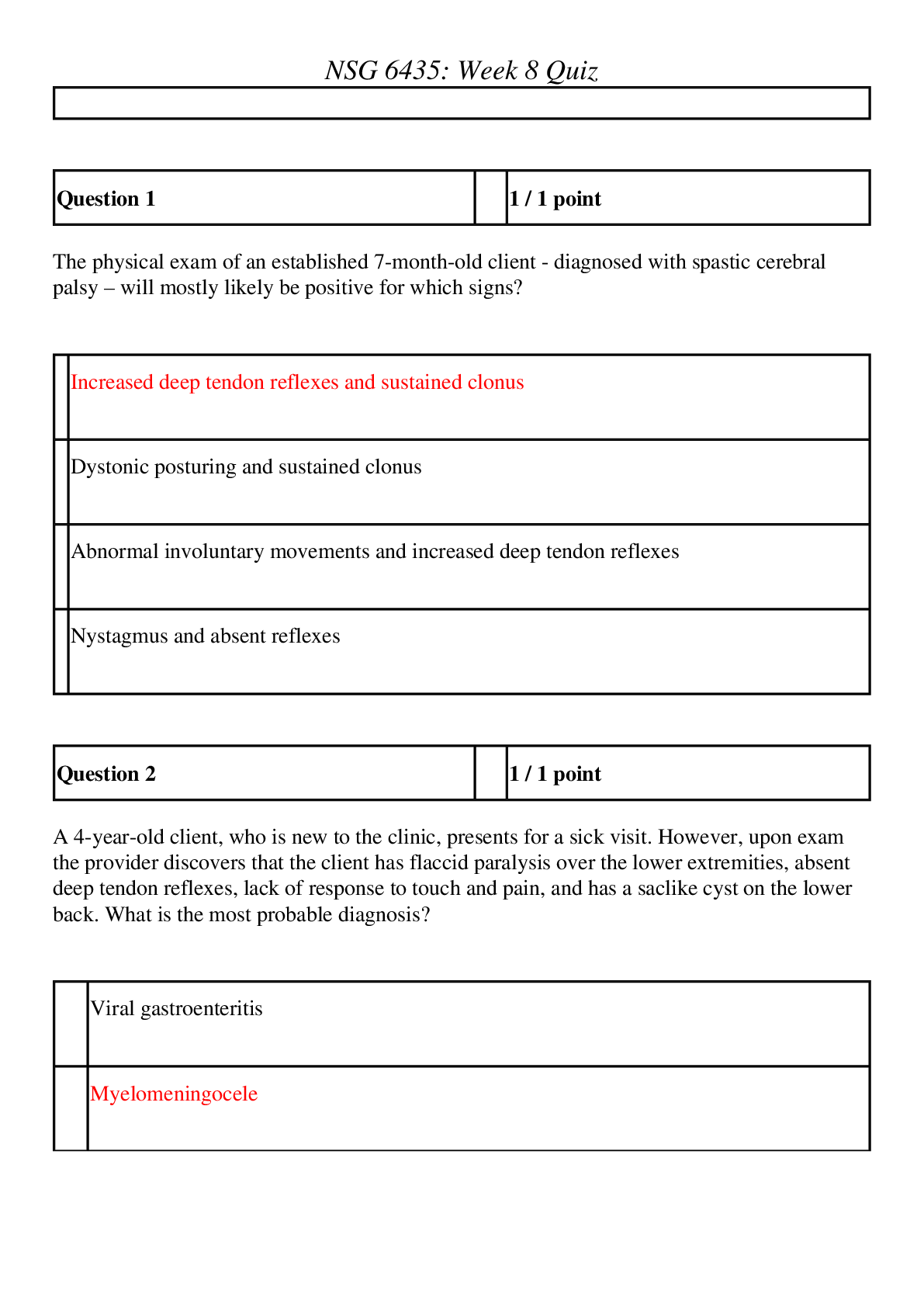











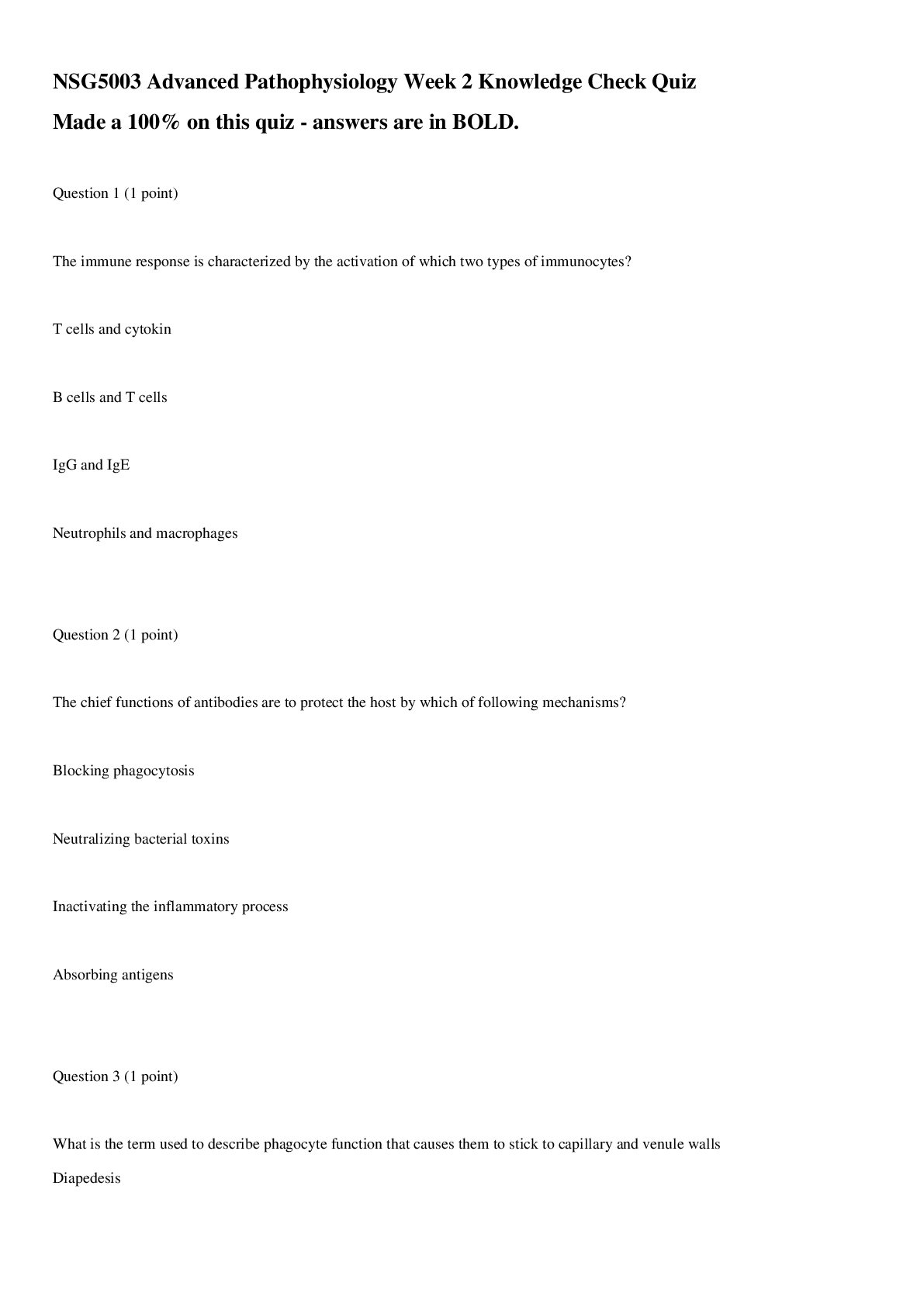
.png)
